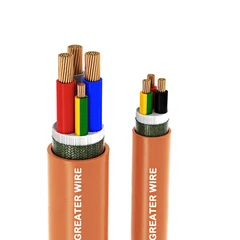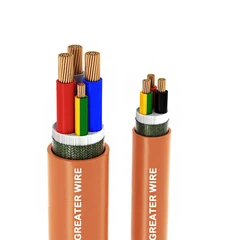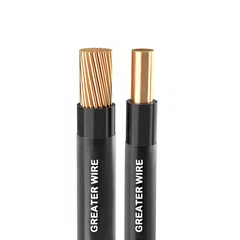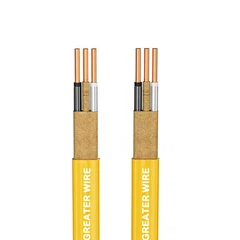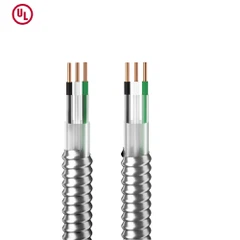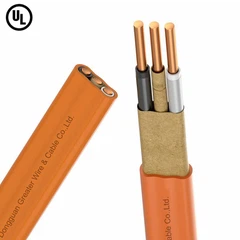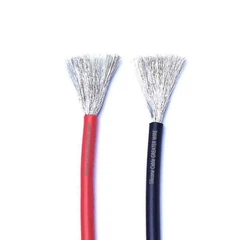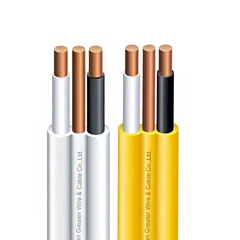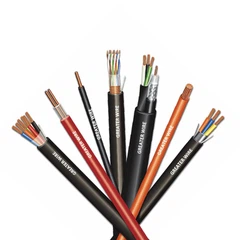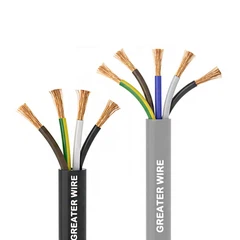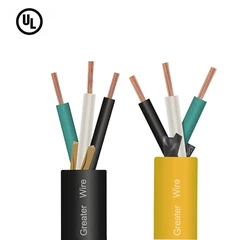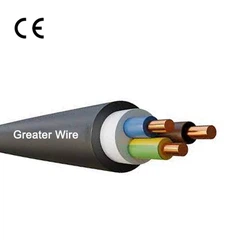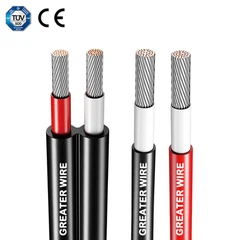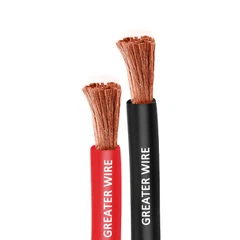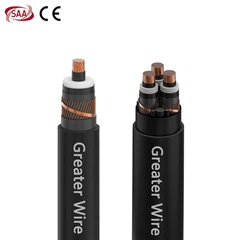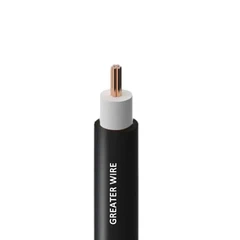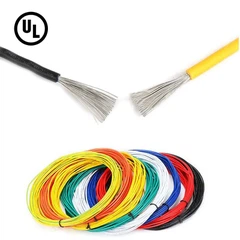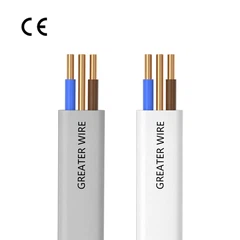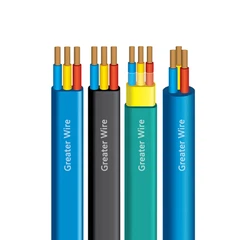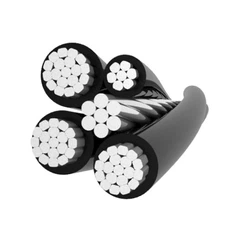I. Basic Definitions and Standards
THHW wire and THHN wire are both standard wire types defined by the National Electrical Code (NEC) of the United States. Their names represent different properties.
| Abbreviation | Meaning | Description |
| T | Thermoplastic | Thermoplastic insulation (such as PVC) |
| H | Heat Resistant (75°C) | Heat resistant to 75°C |
| HH | Heat Resistant (90°C) | High heat resistance to 90°C |
| W | Wet Locations | Can be used in wet locations |
| N | Nylon Coated | Nylon sheath, improves mechanical strength, oil and corrosion resistance |
In general, THHW wire have thermoplastic PVC insulation and are suitable for dry or wet environments, operating at 90°C (dry) or 75°C (wet). THHN wire have a maximum operating temperature of 90°C in dry environments and have a double-layer structure of PVC insulation and nylon jacket. The nylon layer improves abrasion resistance and chemical resistance.

2. Comparison of structural composition
Although both use PVC as the main insulation material, the difference in their outer layer structure is one of the keys to determine the application scenarios and performance differences.
THHW cable: single-layer PVC insulation, no additional outer sheath. The structure is simple, but it still has strong applicability in humid or underground environments.
THHN cable: a layer of nylon sheath is coated on the outside of PVC insulation. The sheath not only improves the mechanical strength of the wire, but also enhances oil resistance, acid and alkali resistance, and tensile strength.
From a structural point of view, THHN wire is slightly better in mechanical damage resistance and corrosion resistance, and is more suitable for laying in complex environments such as cable troughs or bridges.
3. Comparison of electrical and thermal performance
From the perspective of electrical performance, THHW wire and THHN wire have the same rated voltage, but have slight differences in temperature resistance and rated current, especially in the temperature resistance level in humid environments.
| Performance parameters | THHW cable | THHN cable |
| Rated voltage | 600V | 600V |
| Dry environment temperature resistance | 90°C | 90°C |
| Wet environment temperature resistance | 90°C | 75°C |
| Flame retardant performance | Good Excellent | Good Excellent |
In short, THHN wires have better stability in high temperature and dry environments, while THHW wires have more advantages in wet, outdoor and underground pipe environments.

4. Differences in application scenarios
1. Application areas of THHW cable
Due to its strong waterproof and UV resistance, THHW wire are often used in:
1.Building power trunk lines;
2.Outdoor wiring and underground laying;
3.Industrial control systems;
4.Power distribution in humid environments;
5.Water treatment plants, ports, power plants and other places with high moisture resistance requirements.
2. Application areas of THHN wire
Due to its strong mechanical strength and chemical corrosion resistance, wire thhn is widely used in:
Indoor distribution lines;
1.Internal wiring of electrical control cabinets;
2.Bridge laying and pipe penetration applications;
3.High-rise distribution systems in commercial buildings;
4.Industrial equipment wiring in dry environments.
5. UL Certification and NEC Specifications
Both THHW cable and THHN wire are certified by UL (Underwriters Laboratories) standards and follow the installation specifications of NEC (National Electrical Code). Both wires have legal and compliant application qualifications in the North American market.
However, the NEC specification clearly states that wire thhn are only suitable for dry locations. If they are to be used in humid environments, their "THWN" properties must be additionally noted. In fact, most modern THHN wires are also marked as "THHN/THWN-2 cable", which means that they have the ability to withstand high temperatures of 90°C and be used in humid environments.
THHW wire naturally have the ability to be used in humid environments, and their applicability is relatively more direct.
6. How to choose THHW cable or THHN cable?
When choosing THHW wire or THHN wire, the following core issues should be considered:
**Is the installation environment humid? **If so, THHW cable or composite cables marked as THWN-2 cable are preferred.
**Will the wires come into contact with oil or corrosive chemicals? **If so, THHN is recommended.
**Is the strength requirement for construction wire pulling high? **THHN cable with nylon outer layer is more wear-resistant and suitable for open wire and pipe wiring.
**Is the budget sensitive? **THHW wire has a slight price advantage.
In practical applications, composite THHN/THWN-2 wire have gradually become mainstream due to their versatility and superior performance, and have multiple advantages such as moisture resistance, oil resistance, and heat resistance. If the budget allows, choosing such composite cables is more versatile and future expandable.

